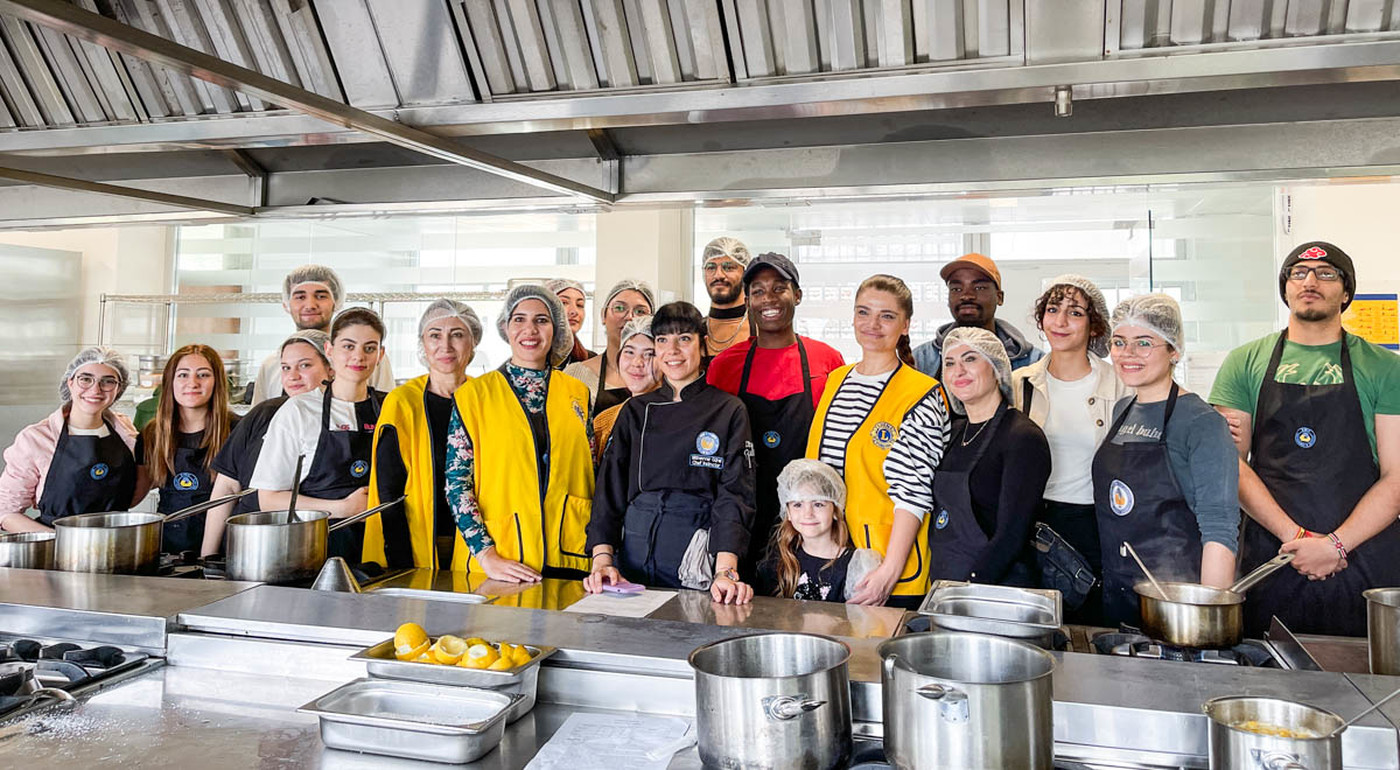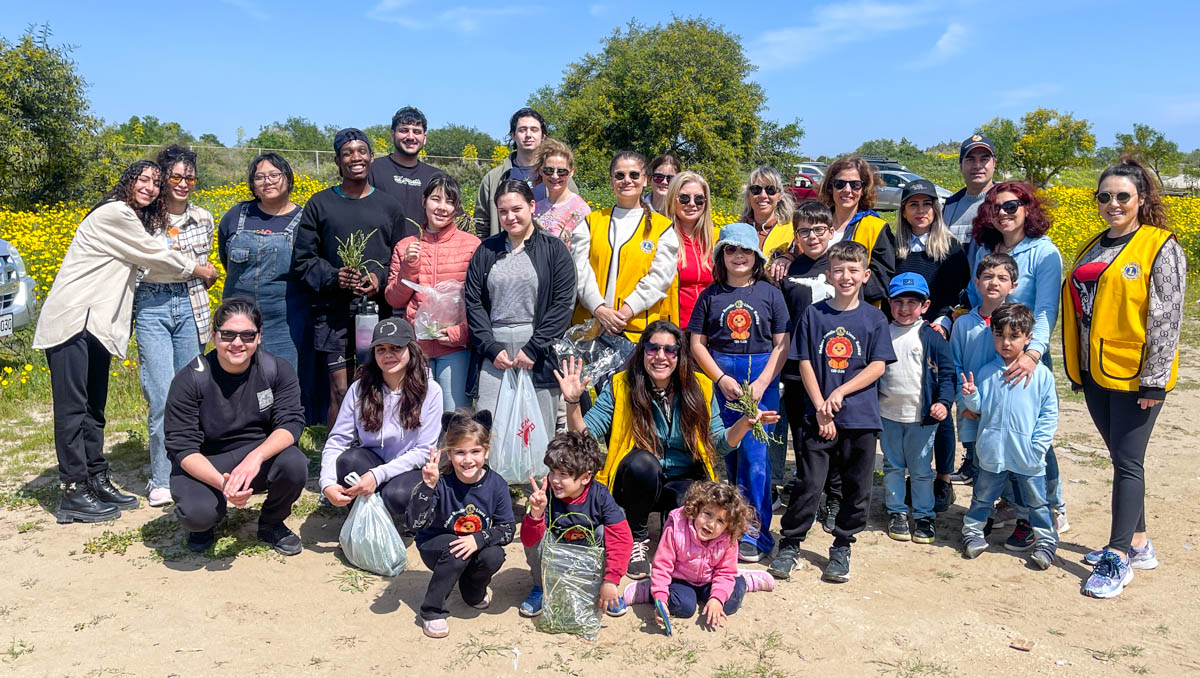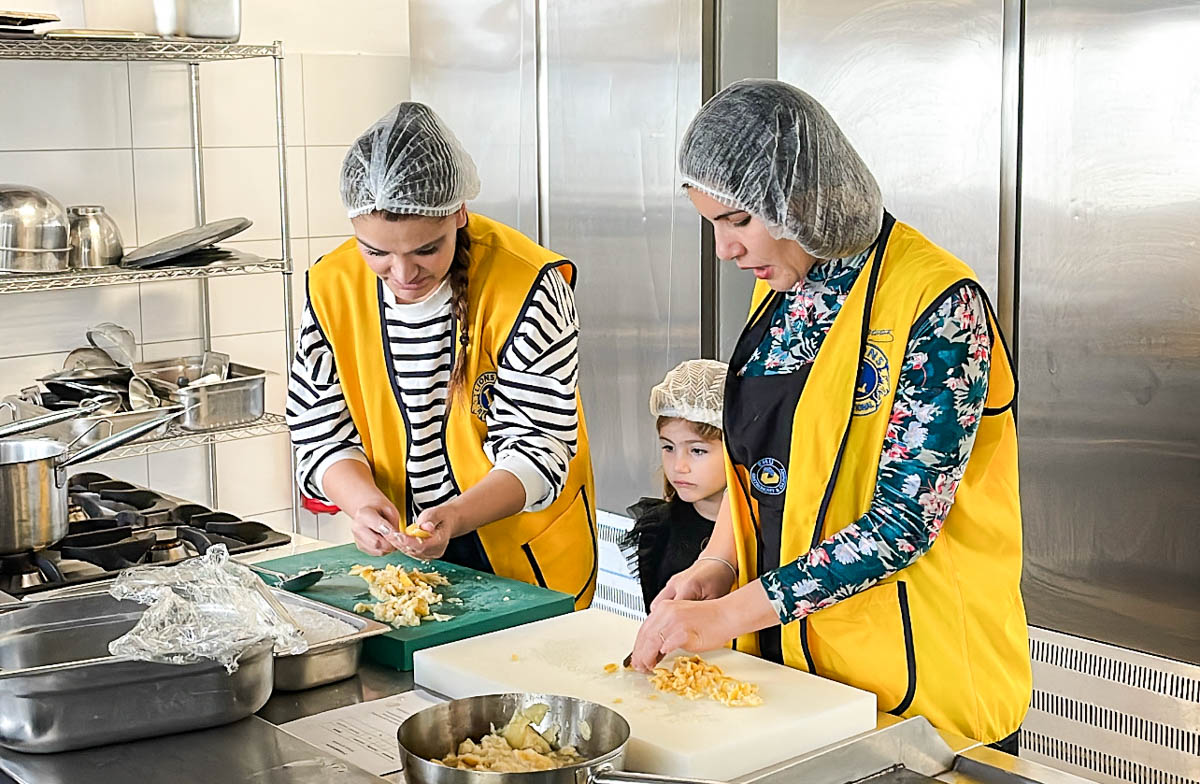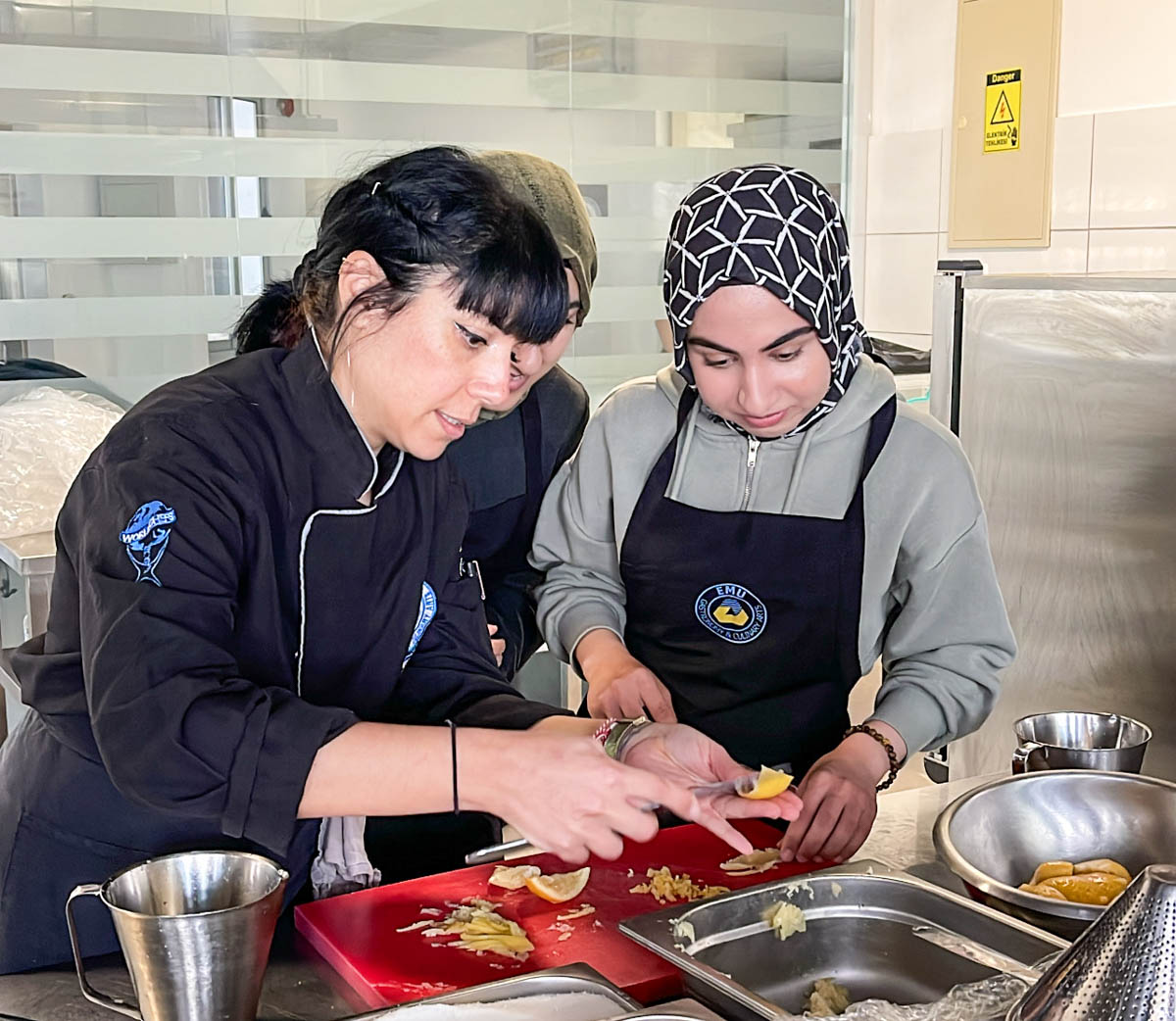In collaboration with Tourism Club operating under the Eastern Mediterranean University (EMU), Social and Cultural Activities Directorate and, the Famagusta Ravelin Club, a workshop was organized with the purpose of supporting sustainable gastronomy and tourism with zero-waste concept.
In the first event, moderated by EMU Faculty of Tourism academic staff member and Chef Münevver Gürel, a gastronomy workshop was organized focusing on the use of lemon. In the said event, participant made lemonade with lemon juice and, lemon jam with lemon peels. With the said event, it was aimed to contribute to reducing food waste and to enhance environmental awareness among participants. Emphasis was placed on using every part of the lemon to minimize waste during the event. Participants gained practical experience in sustainable cooking practices. At the end of the workshop, attention was given to transforming surplus production into marketable products, with the aim of showcasing these products at the Tourism Club stand during the upcoming EMU Tourism Week.
On the other hand, in the second event organized within the scope of the workshop, participants went to “ayrelli” (a type of wild asparagus found in Cyprus) picking accompanied by a guide. The event consisted the introduction of the product, appropriate cooking techniques and tasting. The aim of this workshop was to raise awareness about wild food sources and to promote eco-friendly tourism activities. The event focused on integrating wild food sources into ecotourism and provided information about local ecosystems and biodiversity.
The events encouraged the reevaluation of surplus products and the ethical harvesting of wild asparagus, contributing to the reduction of food waste and the conservation of natural resources. Participants gained knowledge and skills about sustainable gastronomy practices that they can apply in their daily lives and professional endeavors, thereby increasing awareness about integrating zero waste principles into culinary tourism experiences.




